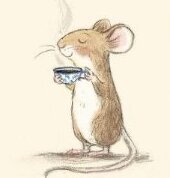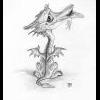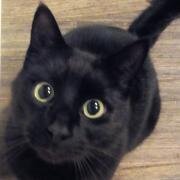All Activity
- Past hour
-
I've decided on mine, it will be "The Castaways" by Lucy Clarke.
- Today
-
Continue the story.....
itsmeagain replied to itsmeagain's topic in Quiz Room / Thread Games Jokes etc
opened a letter from Dress and Harass, solicitors, of Bell Bow. 'Dear Mr Revolting. I write this letter in the hope of you being able to cast some light upon a matter relating to some beefburgers sold to you by Burn it and Flog it, of Cow Back lane. Mrs Lauren Evade and her partner, Richard Useless, do verily report you failed to pay 800 quid for200 prime burgers. I gather you got local youths to eat, but no payment... -
and causing Bertie to think all his birthdays had come at once. 'You come up with a plan and get back to me,' Rosie purred and giving her most winning smile, sashied her way out. She couldn't wait to tell Johnny about their now healthy bank balance and the hope of a further fund boost from Bertie. However, Johnny ...
-

Never Ending Song Titles - Part 8
poppy replied to Kylie's topic in Quiz Room / Thread Games Jokes etc
The Prettiest Star ~ David Bowie -
I feel like this about a lot of books That's on my wish list too! What do you think so far? I've started The Thursday Murder Club, which I got as a birthday present and is a pretty classic mystery, so definitely fits with our theme!
- Yesterday
-

Never Ending Song Titles - Part 8
muggle not replied to Kylie's topic in Quiz Room / Thread Games Jokes etc
Little Star - The Elegants -
July so far! 27. English Journey by JB Priestley *** Read in parallel with Stuart Maconie's The Full English (see below). A fascinating historical document, one person's snapshot of 1933 England, in the 'calm' before the storm of World War 2. This was particularly so, as I read it in the Folio Society edition, illustrated with contemporary photographs. Priestley is not afraid to express how he sees things, and finds much both to like and to be angry about. There are also some juddering moments when, at best, one has to accept that this is not a contemporary writer! I was surprised to find it quite hard work to finish - just felt long. (I was very surprised that my own village on the outtskirts of Leeds was mentioned twice, even if only in passing!). 28. The Full English by Stuart Maconie **** A modern retracing of JB Priestley's English Journey. I picked this up almost at random (and then, when I realised what it was, started reading Priestley's book in parallel to fully follow Maconie's efforts at repeating Priestley's experience), and half expected it to be one of those light, attempting-to-be-humorous travelogues that are either a pleasant easy read, or cringemaking (a la Tim Moore). In the event, this pleasantly surprised, as it was rather better, being much more straightforward and down to earth, more an attempt to put a finger on the pulse of England today. It doesn't dig any deeper than taking a pulse, but in that it, at least for me, succeeded. It was certainly an interesting historical update! 29. Thunderclap by Laura Cumming ****** Initially a Christmas present from my OH, then also a book group choice (which encourage me to get around to reading it!). Why oh why did I delay? I had read and enjoyed Cumming's On Chapel Sands, which focused on her mother, this went down the paternal route. Cumming herself is art critic for the Guardian, and the daughter of Scottish artist, James Cumming. The book is a memoir around him and of the importance of Dutch art in Laura's life, focused particularly on Carel Fabritius and in particular his painting 'A View of Delft'. I found it beautifully written, perfectly balanced, and a totally captivating read (I also learned a lot!). The sort of book where you want to start again immediately. It's also the sort of book I want to write more about, but I think I'll leave that until I've reread it! Comfortably the best book I've read so far this year. 30. A Flat Place by Noreen Masud ** Like Thunderclap above, this was shortlisted for this year's inaugural Women's Prize for Non-fiction - another memoir, but utterly different, both in its writing and in my experience of the book. Masud has been diagnosed as suffering from complex post-traumatic disorder, the result of an abusive upbringing in Pakistan, from which she escaped to Britain (when her father disowned her) in her mid-teens. The book takes as its theme her fascination with flat places, tied up with her illness, the series of chapters each focusing on a different location - the first in Pakistan, the rest in Britain - reflecting the flatness she herself feels. It's a slim volume, barely 200 pages, a book widely acclaimed for the quality of writing, but I have to say I struggled. To me, it was in fact a bit of a mess. The initial chapter (focusing on the author's early life in Lahore) whilst laying some groundwork to understanding the causes of her cPTSD, left quite a few questions unanswered, deliberately so I felt. I did think clarification would come in later chapters, where discussion of her illness and therapy was interwoven with her experience of the different British flat places, but no, the obscurity remained. Instead, her (understandable) anger seemed to widen to include negative commentary on British racism, colonialism and weakness, the very homogeneity of which smacked (to me) of the very same traits she was accusing people of. And, on a very trivial note for some, any book that includes even one phrase along the lines of "where me and my sister slept when we visited" (p.159) can not possibly be described as 'beautifully written'. Sorry! I think there were two main problems with this book for me. The first is partly of my own making: I came to this expecting a book largely about the various 'flat places' themselves, and to some extent it was, but only to the extent of how they affected her and her illness, in a very tightly focused way: they simply became, to me, overheavily used metaphors. The former was almost inevitable I suppose, given the introspective, isolationist, nature of the illness as the author describes it (about the only being that she seems initially to have a successful relationship with is her cat, although the late chapter describing her time with her mother suggests an improvement in that relationship), but whereas several reviewers have commented on finding the 'nature' material less interesting, I found the balance too much the other way, suggesting a falling between two stools. (With the chapter on Orkney featuring so prominently, I was strongly reminded of Amy Liptrot's, The Outrun, which to my mind was a far stronger, more coherent, book). Interestingly, in her end note, the author herself says that the book started "solely, [as] a study of encounters with flat landscapes. It was in writing it....that I came to understand that the complex trauma I sustained in my early life was an element which could not be omitted", Secondly, another reviewer pointed out that in Safiya Sinclair's How To Say Babylon the author is told to hold off writing her memoir until she is cured (IIRC). In A Flat Place, it's apparent that Masud's illness is ongoing. Obviously some illnesses are permanent (Is this? Very possibly, but actually I don't feel we learned much about the condition, and again only in how it related very tightly to the author herself*), but this book did come over as someone who is still very heavily enmeshed in the process, and I wonder if that is why it felt so muddled and egocentric (yes, I know it's a memoir, but this was so about 'me'). *In the endnote, Masud states that she is "less interested in the diagnosis, or the term, than in the particularities of the way I experience of my life." and, indeed, questions the legitimacy of the word trauma as being a purely "Western paradigm". To be honest, I would have appreciated her having this discussion earlier in the book, as it puts a completely different slant on what one has understood to have learned to that point.
-
Never Ending Song Titles - Part 8
Madeleine replied to Kylie's topic in Quiz Room / Thread Games Jokes etc
silver Star - Frankie Valli and the 4 Seasons -
on his marital bed....
-
Continue the story.....
itsmeagain replied to itsmeagain's topic in Quiz Room / Thread Games Jokes etc
really, out of the ranks of London's wealthy restauranteur entrepreneurs, will support me in my wish to further develop the cattery? Who is about to come up with groundbreaking, innovative, cash, errr sorry, ideas..to assist a lady like me..one with delectable...' 'At your service you delectable young dame...how much loving..errr sorry..cash..were you thinking..?' , asked Bertie, transfixed by the lovely Rosie, who as Poppy said, looks like Bernadette from Big Bang theory. 'Well, if you can assist with say 35k as a part loan part gift, percentages of each to be decided by you, then I see no reason we can't get on ..rather well', she whispered, sounding like Joanna Lumley on an especially luxurious day... -
Never Ending Song Titles - Part 8
PYX replied to Kylie's topic in Quiz Room / Thread Games Jokes etc
"Silver, Blue & Gold" - Bad Company -
Finished The Waves. Not my cup of tea. Maybe I am just prejudiced against Virginia Woolf. According to the BBC 2015 poll conducted among foreign academics and journalists, the top 20 British novels were 1 Middlemarch 2 Mrs Dalloway 3 To the Lighthouse 4 Great Expectations 5 Jane Eyre 6 Bleak House 7 Wuthering Heights 8 David Copperfield 9 Wuthering Heights 10 Vanity Fair 11 Pride and Prejudice 12 Nineteen Eighty-Four 13 The Good Soldier 14 Clarissa 15 Atonement 16 The Waves 17 Howards End 18 Remains of the Day 19 Emma 20 Persuasion I do not know why Mrs Dalloway, To the Lighthouse or The Waves are so highly rated. They are experiments in literature so far as I can see. I did not like The Good Soldier either. My favourite out of that lot was Great Expectations. I also thought Middlemarch, Bleak House, Wuthering Heights, Nineteen Eighty-Four, and Clarissa were great. The others were good (except the Virginia Woolf's novels and The Good Soldier). The next one on the list that I have not read is Jude the Obscure by Thomas Hardy at 23, but I swore not to read that after watching the film. It was a good film, but I did not like what Hardy did to the innocents.
-
at your disposal, ready and willing.' 'Haha, but are you talking about father or Johnny? Daddy is getting more and more ... eccentric, every day, but Johnny is fine. And I'll keep you in mind if we're ever short of staff. But who will ...
-
all droopy and saggy
-

Never Ending Song Titles - Part 8
poppy replied to Kylie's topic in Quiz Room / Thread Games Jokes etc
Silver Bells ~ Bing Crosby - Last week
-

Never Ending Song Titles - Part 8
muggle not replied to Kylie's topic in Quiz Room / Thread Games Jokes etc
Silver Threads Among the Gold - Bing Crosby -
Never Ending Song Titles - Part 8
Madeleine replied to Kylie's topic in Quiz Room / Thread Games Jokes etc
Hi Ho Silver Lining - Jeff Beck -
The Mars House by Natasha Pulley. Oh what a dire, dragging disappointment this was! I loved Natasha Pulley's first books where she delves into a slightly whimsical alternative world; her last one which was based on Russian nuclear experimentation in the 60's less so but it was still enjoyably off beat in places and the characterisation was great. The Mars House is set in the future with a Chinese colony on Mars and Earth gradually being destroyed by climate change and a war between America and Russia. January, a ballet dancer, leaves behind flooded London to go to Mars as a refugee where as an immigrant he does the menial jobs that the native inhabitants of Mars don't do. The earth immigrants have grown up in a far more powerful gravity than the Martians so are much stronger - dangerously so and can inadvertantly cause serious injury. The only only way Earth refugees can become actual citizens is by having a highly dangerous procedure to make then less muscular so so less lethal which can cripple them and certainly shortens their lives. Citizens are gender neutral while "Earthstrongers" have gender specific pronouns. There is a movement among Martians to force all Earthstrongers to have the procedure whether they want it or not... Goodness it all got tedious. She says in her acknowledgements that her London publisher refused to take the book and I'm not surprised. What does surprise me is that she found another one to take it.
-
Never Ending Song Titles - Part 8
Limp replied to Kylie's topic in Quiz Room / Thread Games Jokes etc
"Hi There" - Too Short -
I'm currently reading The Cautious Traveler's Guide to the Wastelands which is fantasy/alternative history and most definitely weird and quite mysterious too so I think it counts! I like the look of The Retreat and I also have Stuart Turton so I think that's me sorted!
-
Never Ending Song Titles - Part 8
Madeleine replied to Kylie's topic in Quiz Room / Thread Games Jokes etc
Here there and everywhere - The Beatles -

Never Ending Song Titles - Part 8
muggle not replied to Kylie's topic in Quiz Room / Thread Games Jokes etc
There Goes My Baby - The Drifters -
I'm still reading it so it's not that bad, I'm just not on board with the story as of yet, which is weird (the story is weird, but I like weird so that's OK). It's well written and the story does continue at a pace.
-
Oh dear! I've got this and am planning to start it fairly soon.
-
Continue the story.....
itsmeagain replied to itsmeagain's topic in Quiz Room / Thread Games Jokes etc
sorted out the dahlias yet..looking after the cats appropriately is he..?...@nd are you, perchance, seeking a cat helper..?...I arrive with excellent aplomb and chivalrous gallantry don't you know..all it needs is word from you and I am...





